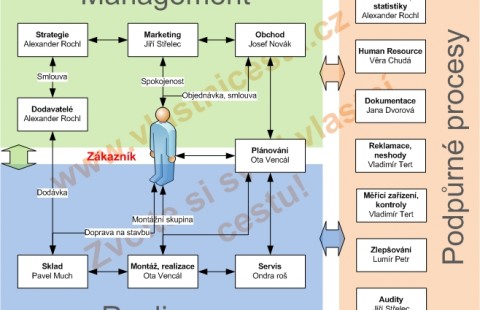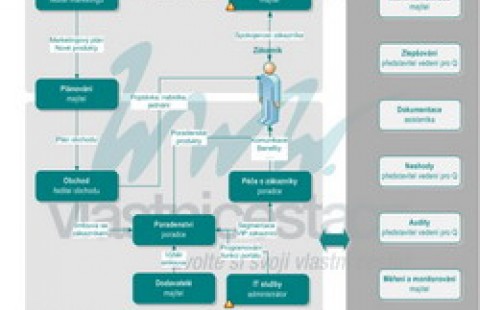The Law on Archives and Records Service describes the work with and the protection of archival documents, the rights and the responsibilities of their owners, archive institutors, the records service and other.
Subject and description of the law
The Law no. 499/2004 on Archives and Records Service describes the following functions:
- selection, filing and classification of archival documents,
- protection of archival documents,
- the rights and the responsibilities of their owners,
- the rights and the responsibilities of their holders and administrators (further referred to only as "a holder of archival documents"),
- utilization of archival documents,
- processing of personal data for archiving purposes,
- system of archives,
- the rights and the responsibilities of archive institutors,
- the records service,
- the area of competence of the Ministry of Interior and other state agencies in the fields of archiving and the records service functions,
- administrative torts.
Essential terms defined in the law
The law defines the following essential terms:
Archival science - a field of knowledge aimed to take care of archival documents as part of the national cultural heritage, executing administrative, fact-finding, scientific, and cultural functions,
Archive - a facility serving to store and take care of archival documents,
Document - each literal, video, audio, electronic or other record, taking either the analogous or the digital form and originating from an author´s pursuit,
Author - everyone through whom a document has come into being
Archival document - a record that, in respect of the time of its creation, content, origin, external features and permanent value determined by its political, economic, legal, historical, cultural, scientific, or information significance has been chosen, in the public interest, to be permanently preserved, and has been registered as an archiving document. Sealers, rubber stamps and other material objects associated with an archival fund or an archival collection.
Records service - provides an expert administration of documents delivered and originating from an author´s activity or, as the case may be, from the activity of their legal predecessors, including their proper reception, registration, circulation, execution, preparation, signing, sending and rejecting in the discarding procedure including inspection of these activities.
Business documents to be archived
The Law on Archives and Records Service, in its annex no. 1, defines documents arising from the entrepreneurial activity that entrepreneurs are obligated to preserve and enable the selection of archival documents from them. The list below applies to those entrepreneurs who are entered into the Companies´ Register. It concerns the following documents:
- Statutory deeds, documents certifying the setting up or the dissolution of an entrepreneurial subject:
- founding documents,
- rules of organization and control acts, corporation charter, statutory bodies and their changes, rules and schemes of procedure,
- documents about changes in entrepreneurial subjects, decisions, decrees, contracts and official letters certifying a change in legal form, mergers, divisions,
- documents about dissolution, liquidation and cessation of business of an entrepreneurial subject, decision on liquidation, reports of the process and the completion of liquidation, proposals for erasures of the Companies´ Register.
- Top management documents of an entrepreneurial subject - notarial records of negotiation among the bodies of an entrepreneurial subject, annual reports including the audit report.
- Documents about the property of an entrepreneurial subject - documents proving ownership of immovable property, trade marks.
- Financial documents - accounting records and statistics of an entrepreneurial subject, namely double-entry accounting books, financial statements and annual statistical statement.
- Documents about publicity campaigning of an entrepreneurial subject - in particular, catalogues of goods with price-lists, publications published by the entrepreneurial subject, and the company chronicle.
- Production programme - its changes and how the products were doing on both the domestic and the foreign markets.
- Cardinal documents about the matters of employment - union contracts.












